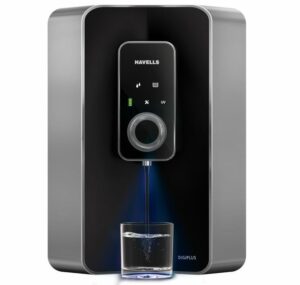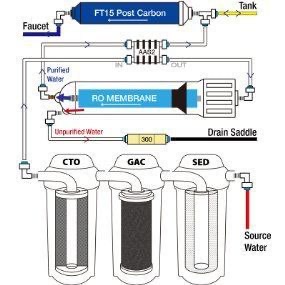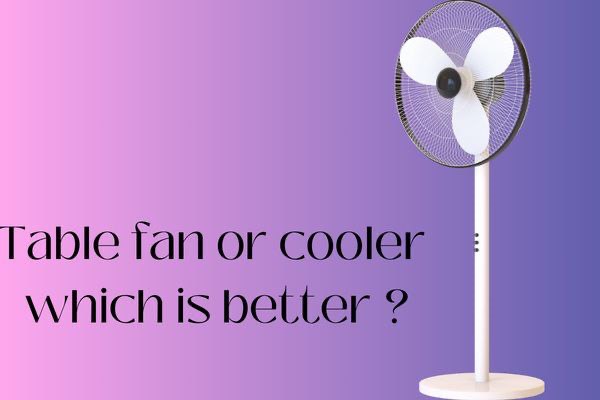Introduction : Unveiling the Mystery : Does water purifier work ?
With increasing concerns about pollutants and contaminants in tap water, many people turn to water purifiers as a solution. But does water purifier work their magic?Water, the elixir of life, is essential for our survival. We rely on it every day to hydrate ourselves, cook our meals, and clean our surroundings. But have you ever wondered about the quality of the water you consume? Is it truly safe? In this blog post, we will dive deep into the world of water purification and unravel the truth behind its effectiveness.


Does water purifier work?
Water purifiers have become a popular addition to many households, but does water purifier work in reality? Can they truly provide clean and safe drinking water? Let’s explore the effectiveness of water purifiers.
There are different types of water purifiers available in the market. Some use activated carbon filters, while others rely on reverse osmosis technology. Each type has its own mechanism for removing impurities from the water. Regardless of the method used, the goal is always to eliminate harmful contaminants such as bacteria, viruses, chemicals, and heavy metals.
The mechanism behind water purification involves multiple stages. The first stage usually involves filtering out large particles like sediment and debris. Then comes the removal of smaller impurities using various filtration methods or chemical processes. Some advanced purifiers even go through additional steps like UV sterilization or mineral enhancement to ensure that the filtered water is both pure and healthy.
It’s important to note that no single type of water purifier can remove all types of contaminants with 100% efficiency. However, when used correctly and maintained properly, a good quality water purifier can significantly reduce the presence of harmful substances in your drinking water.
To sum up so far though: Water purifiers do indeed work by effectively eliminating most common contaminants found in tap or well-water sources.
Types of water purifier
When it comes to choosing a water purifier, you’ll find a variety of options available in the market. Each type has its own unique features and advantages. Let’s explore some popular types of water purifiers.
1. Reverse Osmosis (RO) Purifiers:
These purifiers use a semi-permeable membrane that removes impurities from water by forcing it through the membrane at high pressure. RO purifiers effectively remove contaminants like heavy metals, chemicals, and bacteria, providing clean and safe drinking water.
2. Ultraviolet (UV) Purifiers:
UV technology uses ultraviolet light to kill microorganisms present in the water. It is highly effective against bacteria, viruses, and other harmful pathogens. UV purification doesn’t alter the taste or odor of the water and requires minimal maintenance.
3. Activated Carbon Filters:
This type of filter uses activated carbon to absorb impurities like chlorine, pesticides, herbicides, and volatile organic compounds (VOCs). Activated carbon filters are commonly used with other filtration methods for comprehensive purification.
4. Gravity-Based Filters:
These filters rely on gravity to push water through different stages of filtration such as sediment removal and activated charcoal absorption without electricity or any external pressure source.
5. Distillation Systems:
Distillation involves heating water until it vaporizes; then condensing the steam back into liquid form to remove impurities like heavy metals and minerals from the original source.
Each type has its own pros and cons depending on your specific needs related to contamination levels or desired mineral content in purified drinking waters.
Mechanism of water purification
Water purification is a complex process that involves removing impurities and contaminants from water to make it safe for consumption. There are various methods used in the mechanism of water purification, each designed to target specific types of pollutants.
One common method is filtration, which involves passing water through layers of porous materials such as sand or activated carbon. This helps to trap larger particles and remove sediment, dirt, and debris from the water.
Another important component in the mechanism of water purification is disinfection. This process kills or inactivates harmful microorganisms like bacteria, viruses, and parasites that can cause diseases. Chlorination is one widely used disinfection method where chlorine is added to kill pathogens.
Reverse osmosis (RO) is another popular technique for purifying drinking water. It uses a membrane to separate impurities from the water by applying pressure. RO systems are capable of removing dissolved salts, heavy metals, and other contaminants present in the water.
Ultraviolet (UV) radiation is also employed as a means of purifying water. UV light destroys microorganisms by damaging their DNA structure so they cannot reproduce or infect humans.
Understanding the mechanism behind these different purification methods allows us to appreciate how effective they are at providing clean and safe drinking water for our daily needs!
Frequently asked questions on water purifier
Q1.How to check authenticity of purification of water?
Ans.To check the authenticity of water purification, you can conduct a water quality test using testing kits or send a sample to a certified laboratory for analysis. Additionally, verify the performance and certifications of the purification system used.
Q2. What are the benefits of using a water purifier?
Ans.Using a water purifier ensures that you have access to clean and safe drinking water at all times. It helps remove harmful substances like bacteria, viruses, heavy metals, pesticides, chlorine, and sediments from tap or well water.
Q3. Do I need a water purifier if my tap water is already treated?
Ans.While tap water is typically treated by municipal authorities to meet safety standards, it may still contain trace amounts of contaminants. A water purifier provides an extra layer of protection by removing any remaining impurities and improving the taste and odor of the drinking water.
Q4. Is bottled mineral or packaged drinking water enough?
Ans.Bottled mineral or packaged drinking waters go through their own purification processes before being sold in stores. However, they can be expensive in the long run compared to using a home-based system like a quality countertop or under-sink filter.
Q5. Which water purifier is better? Electric or non electric?
Ans.The choice of a water purifier depends on individual needs. Electric purifiers are efficient and can remove a wide range of contaminants, while non-electric purifiers are cost-effective and suitable for areas with intermittent water supply.
Q6. How often should I replace the filters in my water purifier?
Ans.The frequency of filter replacement depends on factors such as usage level and quality of input water.
Generally speaking,
– Sediment filters: every 6-12 months
– Carbon filters: every 6-12 months
– RO membrane: every 2-3 years
– UV lamp: every 12 months
Q7. Which water purifier is good for hard water ?
Ans.Water purifiers with reverse osmosis (RO) technology are generally considered effective for treating hard water, as they can remove minerals and dissolved solids that cause hardness, providing cleaner and softer water.
Conclusion
It’s important to note that no single method can eliminate all types of impurities present in water completely. Therefore, combining multiple filtration stages ensures maximum effectiveness.
Remember that regular maintenance is essential to keep the functionality of your chosen water purifier at its best.
In conclusion ,investing in a good quality water purification system provides peace of mind knowing that you have taken steps towards safeguarding yourself and your loved ones against potential health risks associated with contaminated drinking water.


